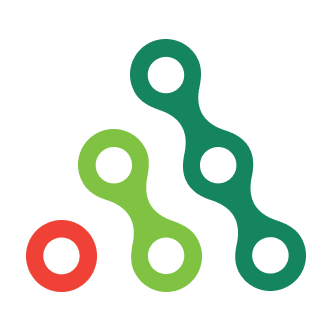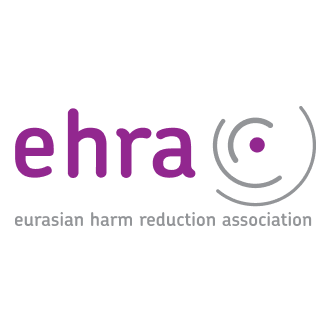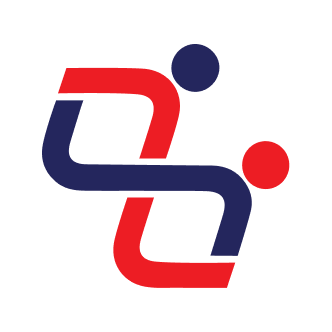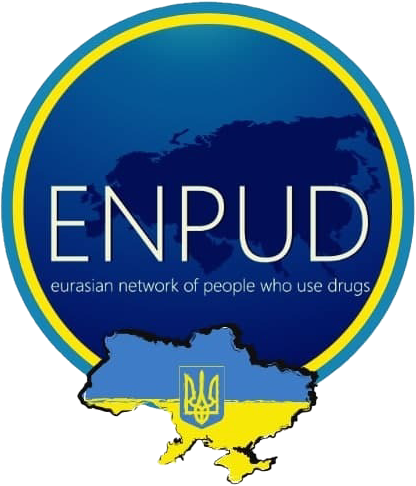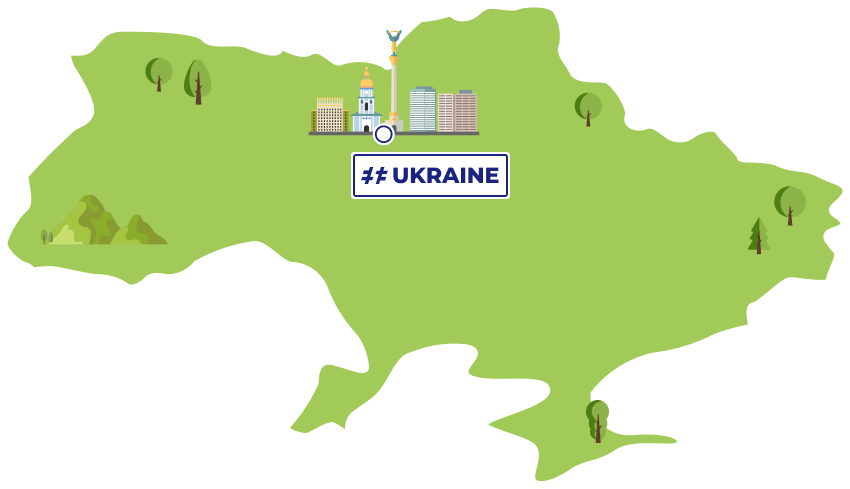
Ukraine
01. HIV care cascade
ACTIVITIES
Implementation of PrEP with long acting ARV
Progress to date
During 2022 we managed to create two working groups regarding the development of a pilot project on long-acting PrEP for key population groups (KPG) in Ukraine or other country in the EECA region with pharmaceutical companies – ViiV Healthcare (ViiV) regarding long-acting cabotegravir (CAB-LA) and GILEAD regarding long-acting lenacapavir (LA PrEP). Our main goal during communication is to provide 100 representatives of KPG with long-acting PrEP as part of a comprehensive approach to HIV prevention with technical support from the Alliance for Public Health and donation of a drug from a pharmaceutical company as an additional HIV prevention option for people at high risk of HIV infection.
Due to significant part to the SoS 2 project advocacy, Ukraine is the first country in EECA to receive CAB LA PrEP for 100 MSM in Kyiv and Lviv during a two-year cycle funded by PEPFAR. This intervention is implemented by the Public Health Center of the Ministry of Health of Ukraine through the National PrEP Program in partnership with APH. The SoS 2.0 project together with Alliance.Global created an information campaign, the main purpose of which is to create demand and awareness of CAB LA among clients (https://long.prep.com.ua/)
With the advocacy support of the SoS 2.0 project, Ukraine became the first EECA country to introduce long-acting cabotegravir (CAB LA). The UPHC, in partnership with the Alliance and other partners, provided the service to 125 clients in Kyiv and Lviv. The pilot project was planned to be expanded to 500 courses by 2025 with the support of PEPFAR. The SoS 2.0 project supported the information campaign. With the help of the LongPrEP account’s campaign videos on TikTok, more than 1 million people in Ukraine were reached, which resulted in more than 1,400,000 views of our campaign videos.
Inclusion of PrEP into nationally approved service packages for MSM and/or other key populations
Progress to date
ECOM in partnership with WHO regional office for Europe analyzed five national PrEP protocols (Armenia, Kazakhstan, Kyrgyzstan, Georgia and Ukraine) and provided Report with recommendations on the steps needed to include PrEP into nationally approved standard package of servises. The report is under design and will be published by the end of February.
Much work was done in 2023 to present recommendations based on analyzes of PrEP Protocols in 5 countries. Online and offline meetings with stakeholders, monitoring visits (Kazakhstan, Kyrgyzstan) were held, the results were presented at various meetings, conferences, and technical consultations. Based on the analysis of PrEP Protocols and updated WHO recommendations, policy briefs were developed and sent to countries, the purpose of which was to show and not miss the importance of new interventions that can improve PrEP services in countries.
PrEP is available and integrated into the healthcare system as part of the standard service package funded by the government in 5 countries: Armenia, Georgia, Kazakhstan, Kyrgyzstan, and Ukraine.
1. Armenia
PrEP is available as part of the national HIV prevention program and partly funded by the governmentand. PrEP has been officially included in the national HIV prevention guidelines approved by the Ministry of Health of Armenia.
2. Georgia
PrEP is available as part of the national HIV prevention program and partly funded by the governmentand.
3. Kazakhstan
PrEP is available as part of the national HIV prevention program and fully funded by the governmentand.
4. Kyrgyzstan
PrEP is included in the healthcare system and fully funded by the governmentandand.
5. Ukraine
PrEP is available and included in national clinical protocols.
Continued state support is confirmed to ensure the availability of PrEP for key populations.
Measures have been taken to strengthen the position of PrEP within healthcare.
Pilot stimulant users ST model/program and evaluate its effectiveness to enable its adaptation and finalization for proposal to governments in the countries of the region
Progress to date
Research protocol developed and submitted for review to the IRB.
Organization and support of two shelters (Kyiv and Ivano-Frankivsk regions), one-time support for 4 shelters, material payments to OST clients
Progress to date
60 stationary places for living in shelters in Kyiv and Ivano-Frankivsk regions were organized with support of food, transportation, coverage of a basic package of medicines and household goods, clothing for 405 people from key groups and members of their families. Provided technical support to 4 shelters (Poltava, Cherkasy, Kryvyi Rih and Zhytomyr). 70 payments were made for the payment of rent and provision of proper social and living conditions for the participants of the OST program. 22 payments were made to victims of violence from the Russian occupiers. In total, more than 1,500 people were covered by the program.
This project was supported in 2022.
Provision of support to refugees among KPs and PLHIV as a part of emergency response: Ensuring better access to services for people who have moved to other countries due to the war (incl communication, navigation, case management): launch and sustaining of an international support service (HelpNow), two HelpNow hubs, a web portal with crucial regularly updated information and online medical consultations solution
Progress to date
Activity currently being funded from alternative sources.
After the GF financial support of the initative ended, in 2023 it was supported by Aidsfonds, which allowed for seamless continuation of work in full scale for 10 months; several more months were focused on finalising the program and establishing a Polish-based Foundation “Help Now Hub” to enable the opportunity to further support refugees and other groups requiring relevant support in Poland and beyond. At the same time, even after the funding had ended, the teams partially continue(d) to provide support and maintain the communication/information resources on a volutarily basis.
Provision of HIV prevention services with precautions against COVID-19
Progress to date
Work on shelters has expanded – in addition to 5 shelters for working with women who use drugs in conditions of violence (Ukraine, Serbia, North Macedonia, Kazakhstan), support for flexible shelters for representatives of the LGBT community in Kazakhstan, Uzbekistan, Kyrgyzstan and Tajikistan has been added. The program was distinguished by a special programmatic approach to working with clients – about 3,200 clients received material assistance in the form of food packages (Georgia, Kazakhstan). PPE support in Kaz for migrants and KGP (124,000 disposable masks, 1,000 antiseptics); CLM to provide quality services for clients of OST programs in 7 countries.
Procurement and distribution of Ag-RDTs
Progress to date
Purchased 120 thousand rapid antigen tests for COVID (Bosnia and Herzegovina, Serbia, Tajikistan, Ukraine) and 4,000 PCR tests for Ukraine to test key population groups and their close contacts.
Community-led advocacy of elimination of identified critical discrepancies with the WHO prevention, testing and treatment guidelines
Progress to date
Current testing and treatment protocols analysis is finished in 7 countries (Armenia, Moldova, Georgia, Kazakhstan, Kyrgyzstan, Uzbekistan, and Ukraine) and recommendations to align the national protocols with the WHO guidelines are provided. The report is available at the link.
WHO has held the analysis of HIV testing guidelines in 6 countries of EECA – Georgia, Kazakhstan, Kyrgyzstan, Moldova, Tajikistan, Uzbekistan. The report is available at the link.
National HIV testing and ART-optimized strategies based on and aligned with the WHO recommendations were developed for 4 EECA countries – Armenia, Kazakhstan, Kyrgyzstan, Moldova.
In Armenia, Kazakhstan, Kyrgyzstan, and Moldova, all key actions related to the development and implementation of HIV testing and ART optimization strategies, in line with WHO recommendations, have been completed. According to the results of the assessment in 2022, there was a need to replace Georgia with another country to implement activities for 2023 and 2024 since the Georgian testing and treatment protocol is generally in line with the 2021 WHO recommendations for the use of ARV drugs for the prevention and treatment of HIV, and as well as other aspects of the clinical management of HIV. During project meetings different optios were discussed, and the desicion was taken to continue the activities in Armenia instead of Georgia.
Armenia
- Approved – Order of the Ministry of Health of Armenia No. 6241-L dated 11/13/2024 on implementation of the clinical protocol “Pre-Exposure Prophylaxis of HIV Infection” in Armenia. The Order entered into force on November 13, 2024.
- Approved – Clinical protocol “Pre-Exposure Prophylaxis of HIV Infection”.
An official letter-response from the Ministry of Health of Armenia dated on November 26, 2024 confirms the approval of the PrEP protocol and contains the information on other legal acts that are developed and will be approved in 2025.
Assessment of OAT sustainability
Progress to date
Assessment of the sustainability of the opioid agonist therapy programme in the context of transition from donor support to domestic funding was conducted in Moldova and Tajikistan. The reports are being finalized and sent for design, they’ll be published by the end of Q1 2023. The assessments in Albania, Kyrgyzstan and Ukraine are ongoing and will be finalized in 2023.
PULS Communitar conducted CLM study to evaluate OAT programs in the Republic of Moldova, identify the level of the availability and acceptability of programs, outline achievements, and identify and evaluate difficulties faced by the program participants. Report with findings and conclusions was prepared and presented on the meeting with service providers and decision makers. Next steps and recommendations for CCM were elaborated.
GENDERDOC-M conducted a CLM study to identify the barriers in access to PrEP among MSM/TG. The results were presented to the Key Affected Populations (KAP) committee. After the presentation, it was strongly recommended to showcase these results at the National Dialogue event. The aim is to leverage the platform to advocate for a comprehensive revision of the National Clinical Protocol on Pre-Exposure Prophylaxis (PrEP) in the first quarter of 2024. This strategic move aligns with the commitment to fostering meaningful changes in the national approach to PrEP in response to the insights gained through the CLM survey.
Forum of PWUD conducted a study on the impact of the absence of take-home OAT on the life of patients and adherence to treatment. Report in Russian is prepared. Meeting with CCM is planned to be organized in January 2024.
Rubikoni conducted a study on the impact of the absence of take-home OAT on the life of patients and adherence to treatment. Furthermore, the meeting with service providers and decision makers was organized, where results of the CLM were presented and discussed recommendations and next steps.
Equal to equal conducted a study on the client satisfaction with OAT. Report in Russian was prepared. Moreover, the meeting with service providers and decision makers was organized, where results of the CLM were presented and discussed recommendations and next steps.
Intighob (Initiative group based on SPIN PLUS) conducted a study of the impact of the absence of take-home OAT on the life of patients and adherence to treatment. Report in Russian language was prepared. Moreover, the meetings with service providers and decision makers was organized, where results of the CLM were presented and discussed recommendations and next steps.
“New Generation” conducted Community Based Assessment of HIV Services Provided to MSM Living With HIV In Armenia through a focus group with broad number of experts and MSM community members (including representatives from CCM). The results were included to “Funding Priorities of Civil Society and Communities Most Affected by HIV, Tuberculosis and Malaria” by Global Fund under the number 9 (The funding priorities and minutes from CRG group meeting attached). These priorities are in active use to prepare an application for the Global Fund grant in Armenia. In addition, results are in active use in the National dialogue now.
Operational research / pilot on ST for stimulant users. Piloting the model/program and evaluating its effectiveness to enable its adaptation and finalization for proposing to governments in the countries of the region
Progress to date
In 2023, the study/pilot protocol was finalised and approved by the IRB, the implementation sites were selected, teams were trained and attended a study visit to the Czech Republic, the medication was procured and delivered to the sites.
During 2022-2023 all preparatory actions were taken (protocol developed and approved by the IRB; all logistic and organisational preparations were held; sites were identified (4 to begin with and 3 additional added later on – Rivne, Zhytomyr, Ivano-Frankivsk, Kyiv, Kharkiv, Cherkasy); drugs were procured and supplied) to enable the pilot to be implemented.
In 2024 the pilot was launched and 103 people were enrolled in the program throughout the implementation period. At the moment of the start of the program, there were no legislative documents in the country, regulating any treatment of people who use stimulant drugs. Since the start of the program, all the preparatory processes and related discussions on various levels, had activated the relevant stakeholders to start thinking and acting in this direction and in 2024 the Ministry of Health issued an order that explicitly states that pharmacostimulants can be used to support stimulant users with ADHD, while preliminarily the only approach that was considered in the country for working with this group of users was psychological support, not pharmacotherapy. (https://moz.gov.ua/uk/decrees/nakaz-moz-ukrayini-vid-13-01-2025-84-pro-zatverdzhennya-standartu-medichnoyi-dopomogi-psihichni-ta-povedinkovi-rozladi-vnaslidok-vzhivannya-psihoaktivnih-rechovin-ta-stimulyatoriv-za-viklyuchennyam-opioyidiv)
The pilot was closely monitored and data was analysed on an ongoing basis; it was presented at a number of regional and global events, including Lisbon Addictions 2024, INHSU 2024, EHRC 2024, CND; the experience was discussed with UNODC at a number of occasions, including as a part of a working group on pharmacotherapy for stimulant users; work is being done to produce videomaterials about the pilot to include into a UNODC course on this topic; regional community networks and TA providers had been regularly updated on the key milestones and progress of the intervention; national stakeholders in the region were informed of the process and its potential and opportunity/possibility to adapt and implement in other countries.
Community-led advocacy of elimination of identified critical discrepancies with the WHO prevention, testing and treatment guidelines
Progress to date
Current testing and treatment protocols analysis is finished in 7 countries (Armenia, Moldova, Georgia, Kazakhstan, Kyrgyzstan, Uzbekistan, and Ukraine) and recommendations to align the national protocols with the WHO guidelines are provided. The report is available at the link.
WHO has held the analysis of HIV testing guidelines in 6 countries of EECA – Georgia, Kazakhstan, Kyrgyzstan, Moldova, Tajikistan, Uzbekistan. The report is available at the link.
National HIV testing and ART-optimized strategies based on and aligned with the WHO recommendations were developed for 4 EECA countries – Armenia, Kazakhstan, Kyrgyzstan, Moldova.
In Armenia, Kazakhstan, Kyrgyzstan, and Moldova, all key actions related to the development and implementation of HIV testing and ART optimization strategies, in line with WHO recommendations, have been completed. According to the results of the assessment in 2022, there was a need to replace Georgia with another country to implement activities for 2023 and 2024 since the Georgian testing and treatment protocol is generally in line with the 2021 WHO recommendations for the use of ARV drugs for the prevention and treatment of HIV, and as well as other aspects of the clinical management of HIV. During project meetings different optios were discussed, and the desicion was taken to continue the activities in Armenia instead of Georgia.
Armenia
- Approved – Order of the Ministry of Health of Armenia No. 6241-L dated 11/13/2024 on implementation of the clinical protocol “Pre-Exposure Prophylaxis of HIV Infection” in Armenia. The Order entered into force on November 13, 2024.
- Approved – Clinical protocol “Pre-Exposure Prophylaxis of HIV Infection”.
An official letter-response from the Ministry of Health of Armenia dated on November 26, 2024 confirms the approval of the PrEP protocol and contains the information on other legal acts that are developed and will be approved in 2025 is also attached.
02. Removing HR/gender barriers
ACTIVITIES
Legal environment and situation analysis as well as mapping of civil society partners in the area of access by migrants to HIV and TB services
Progress to date
On December 9, the REGMH with the assistance of the NCC Secretariat held in Dushanbe a Roundtable “Protection of health of migrants from Tajikistan”. The event was timed to presentation of a new study conducted by the REGMH: “Situation and Economic analysis of HIV-related health services in the field of migration in Tajikistan”.
On December 13, 2022, the Regional Expert Group on Migration and Health together with Central Asian Association of People Living with HIV held a Roundtable in Almaty “Health of HIV positive migrants in Kazakhstan”. The aim of the Round Table was to promote effective and timely treatment of international migrants living with HIV. During the meeting, the Situational and Economic analysis on the provision of HIV-related health services for international migrants in Kazakhstan was presented and discussed.
On December 19, REG together with local NGO “Real World. Real People” held a Roundtable in Armenia, Yerevan aimed to buster a discussion and exchange of experience on the provision of services for international HIV-positive migrants between heads of health authorities of the Republic of Armenia, government departments responsible for migration and civil society organizations. At the meeting, a study “Analysis of legal and institutional barriers to accessing HIV services among migrants in the Republic of Armenia” (developed by REG in 2021) was presented.
Also, in Q4 REG has launched a study is Kyrgyzstan.
On October 11, REG held an online meeting “Migrants’ access to HIV services in Central Asia and Caucasus” that gathered representatives of UNAIDS, Central Asian Association of PLHIV (Kazakhstan), TB People (Georgia), NGO “Real World, Real People” (Armenia), IFRC Central Asia, WHO Europe, Elton John AIDS Foundation, NGO Equality Movement (Georgia), AFEW (Kyrgyzstan), IFRC South Caucasus, Global Fund, WHO, and MSF. The goal of the meeting was to initiate a discussion and work out possible solutions to provide access to HIV services for those who urgently left the countries following the political situation.
Situation and Economic analysis of HIV-related health services in the field of migration in Tajikistan and Kyrgyzstan were held and are available at the links: Tajikistan, Kyrgyzstan.
In addition, the report “Ukrainian Refugees in European Countries: Barriers, Solutions and Best Practices. Access to HIV and Tuberculosis Care” was developed and is available at the link.
Developing and launching call for “Gender and HIV” small grants with special eligibility focus on Monitoring situation with human rights of Trans* people
Progress to date
Small Grants Programme with 4 selected projects run by grass-root NGOs in 2022 included:
- “National Trans Coalition” NGO with the project titled “HIV prevention in Armenia through gender mainstreaming” (Armenia);
- “The Public Association “Union for Equity and Health” NGO with the project titled “Gender Equality for sex workers” (Moldova);
- “Rromnjako Ilo” Zrenjanin he Public Association” NGO with the project titled “Check your health – Equality for Trans Roma and Roma women/girls sex workers” (Serbia);
- “NON-GOVERNMENTAL ORGANIZATION «NASHA DOPOMOGA»” with the project titled “RIGHT TO HEALTH!” (Ukraine).
- The project applicant is the organization “Albanian Association of People Living with HIV/AIDS (PLWHA)” with the project titled “New approach on transforming the spiral of exclusion and marginalization, towards the right of recognition before the law, gender-diverse and reduce the violence in health-care settings for trans persons in Albania”.
- The project applicant is the “National Trans Coalition” NGO with the project titled “Strategic pathway to remove structural barriers for trans* communities to PrEP and PEP services in Armenia”. The proposed project has been designed to establish favorable conditions for improving access of Trans* communities to PrEP and PEP services in Armenia.
- The project applicant is the organization “STAR STAR” Skopje with the project titled “Community Mobilization to Mitigate Funding Cuts and Gender Inequality in National HIV Programs for Sex Workers in North Macedonia”. The project is envisioned as a response to the latest developments in North Macedonia related to provision and delivery of HIV prevention services for key populations.
- The project applicant is the organization “Rromnjako Ilo” Zrenjanin he Public Association” NGO with the project titled “Supporting health wellbeing and safety of Trans and Intersex Roma, sex workers and HIV+”.
In 2024, grants “Gender and HIV” were implemented in Albania, Georgia, Moldova and Ukraine.
Moldova
GENDERDOC-M, alongside a parent support group, aimed to create a safe and inclusive environment for transgender and gender-nonconforming youth. Two formal partnerships with youth clinics expanded access to health services and 24/7 hotline support. Parent education sessions led to increased understanding, school negotiations for name recognition, and medical referrals. As a result, a strategic plan for 2025 includes engaging health and education ministries to address systemic barriers.
Georgia
The Queer Association Temida established an informal network of trans-friendly professionals across three cities, despite restrictive anti-LGBT laws. The network held two meetings to discuss the legal landscape and continued service delivery. A memorandum with Psychea Mental Health Center helped maintain access to gender-affirming care. A peer educator training course was launched, and two trained educators provided online consultations to 32 beneficiaries, offering support on HIV and gender-affirming care.
Ukraine
The “Help Is Near” project by HPLGBT produced a comprehensive report on barriers and solutions in trans health services, especially for intersectional groups like sex workers and those using psychoactive substances. Recommendations for service decentralization were developed and are planned to be presented to the CCM in early 2025. HPLGBT aims to integrate these recommendations into national funding requests to the Global Fund, ensuring sustained support for marginalized trans communities.
Evidence-based advocacy interventions with the aim of removing legal barriers to, and improve the rights of, migrant access to HIV and TB care in sending and receiving countries of in EECA region: national and regional (EECA) meeting and roundtables with participation of civil society, migrant organizations, healthcare officials and parliamentarians
Progress to date
On December 9, the REGMH with the assistance of the NCC Secretariat held in Dushanbe a Roundtable “Protection of health of migrants from Tajikistan”. The event was timed to presentation of a new study conducted by the REGMH: “Situation and Economic analysis of HIV-related health services in the field of migration in Tajikistan”.
On December 13, 2022, the Regional Expert Group on Migration and Health together with Central Asian Association of People Living with HIV held a Roundtable in Almaty “Health of HIV positive migrants in Kazakhstan”. The aim of the Round Table was to promote effective and timely treatment of international migrants living with HIV. During the meeting, the Situational and Economic analysis on the provision of HIV-related health services for international migrants in Kazakhstan was presented and discussed.
On December 19, REG together with local NGO “Real World. Real People” held a Roundtable in Armenia, Yerevan aimed to buster a discussion and exchange of experience on the provision of services for international HIV-positive migrants between heads of health authorities of the Republic of Armenia, government departments responsible for migration and civil society organizations. At the meeting, a study “Analysis of legal and institutional barriers to accessing HIV services among migrants in the Republic of Armenia” (developed by REG in 2021) was presented.
On October 11, REG held an online meeting “Migrants’ access to HIV services in Central Asia and Caucasus” that gathered representatives of UNAIDS, Central Asian Association of PLHIV (Kazakhstan), TB People (Georgia), NGO “Real World, Real People” (Armenia), IFRC Central Asia, WHO Europe, Elton John AIDS Foundation, NGO Equality Movement (Georgia), AFEW (Kyrgyzstan), IFRC South Caucasus, Global Fund, WHO, and MSF. The goal of the meeting was to initiate a discussion and work out possible solutions to provide access to HIV services for those who urgently left the countries following the political situation.
REGMH held a number of online and offline seminars and rioundtables to present and discuss the results of their studies in Azerbaijan, Tajikistan and Kyrgyzstan. A number of discussions was also held to scale up remote registration of migrants with HIV to get access to HIV services. For now, remote registration is functional in Tajikistan, and the preparatory work is implemented in Armenia, Azerbaijan and Kazakhstan.
In particular, on June, 6 in Dushanbe REGMH held a Round Table on protecting health of Tajik migrants. The purpose of the meeting that gathered together the staff of the AIDS Center, the patients’ community, specialists from NGOs in the region and host countries was to discuss the maintaining of the algorithm for remote registration of citizens of Tajikistan with HIV living abroad, and to formulate further steps to improve access of migrants to HIV services. Deputy Director of the Republican AIDS Center made a proposal to develop and sign a Memorandum for Mutual Recognition of Medical Tests at the level of Republican AIDS Centers in the Central Asian region.
On December 4, REGMH held a Round Table in Yerevan, Armenia. The key focus of the meeting was the provision of HIV services for Armenian citizens living abroad.
On December, 25 REGMH participated in online meeting to discuss current issues of implementation/piloting of “Remote registration of migrants with HIV in Uzbekistan”, organized by a consortium of organizations in Uzbekistan to promote the protocol, including IOM, CCM, AFEW, and REGMH. During the meeting, representative of CCM informed that the protocol was accepted and signed by the Center for State Sanitary and Epidemiological Surveillance of the Republic of Uzbekistan. What is very important, the final version includes recommendations suggested by REGMH making it easier to register a migrant than it was in an initial version of the document.
On June 15, REGMH held its quarterly Working group meeting on remote registration of PLWH living abroad. As a result of the Round Table held earlier in Uzbekistan, the group managed to attract specialists from the Republican AIDS Center and the CCM of Uzbekistan. During the meeting, the Group discussed the issue of accepting medical documentation (certificates, test results) issued by country of migrant’s destination, which are necessary for remote registration; also, the standard for the minimum set of documents for remote registration of citizens in migration (based on WHO’s recommendations) were presented to participants on order to foster the development of remote registration in the EECA countries.
REGMH has launched a series of Webinars “Health of Refugee and Migrants from the EECA countries”, designed both for those who flee and seek help in the host country and for those who organize help in receiving countries. Also, webinars could be of interest to those who research and solve systemic problems.
The first webinar took place on August 09 and was devoted to revision of problems that Ukrainian refugees who use drugs face: “People Who Use Drugs from Ukraine: Challenges and Solutions”.
Migration and Health Summer School was hekd on 21-22 Aug 2023 in Yerevan, Armenia. where participants discussed best practices and solutions for providing medical care to migrants and refugees from the EECA region. Country representatives of REGMH from the EECA region, representatives of health authorities from the EECA countries, experts from regional and international organizations, WHO, UNAIDS, UNDP, and MSF attended the event, totally, 40 participants from 12 countries.
On November 24, 2023 REGMH held a Round table in Bishkek, Kyrgyzstan to discuss current issues of migrant health in the context of HIV. The event brought together experts from relevant ministries and departments, non-governmental and civil sectors, as well as representatives of international organizations. A key part of the round table was the presentation of study’s results conducted by REG in 2023 “Situational and economic analysis in the field of migration and the provision of medical services related to HIV in the Kyrgyz Republic” to identify legal and institutional barriers related to HIV faced by citizens of Kyrgyzstan returning from migration.
Regional Meeting on Migrant Health and HIV Response took place on September 19-20, 2024, in Samarkand. Experts from EECA countries gathered to discuss adapting health services for migrants amidst mass population movements. Organized under the Global Fund framework, the event highlighted key challenges migrants face, including access to HIV/TB treatment, language barriers, and mental health support. The #HelpNOW HUB, which assisted 37,500 Ukrainians in 50 countries, was presented as a best practice model. Participants emphasized the need for migrant-sensitive policies, digital health solutions, and sustainable healthcare partnerships to ensure uninterrupted medical services across borders.
REAct (https://react-aph.org/): Monitoring of human rights violations and discrimination against PLHIV and KPs. Responding to such cases through provision or referring to legal or social services to victims and through advocacy actions. In Georgia, Kyrgyzstan, Moldova and Tajikistan, REAct system was initiated within SoS_project#1.0 in 2020, and in 2022 is transferred to national funding, meanwhile APH continues to provide technical support to users. In Ukraine, REAct was implemented in 2019 and is functional within national GF grant. REAct system is supported by APH in Uzbekistan for 2022-2023, in 5 Balkan countries – for 2022-2024, and in Armenia and Azerbaijan – for 2023-2024. At the same time, regional networks ECOM and ENPUD started to use REAct program for documentation in several countries of the region and are supported for 2022-2024 within SoS_project#2.0 grant.
Progress to date
Cumulatively, during 2022 there were registered 6700+ cases in 13 countries (Albania, Armenia, Bosnia and Herzegovina, Georgia, North Macedonia, Moldova, Montenegro, Kazakhstan, Kyrgyzstan, Tajikistan, Serbia, Ukraine, Uzbekistan) involving 170+ CBOs, as well as regional networks such as ECOM (in Uzbekistan, Tajikistan, Armenia, Kazakhstan, Kyrgyzstan) and ENPUD (Georgia, Moldova, Ukraine, Kyrgyzstan, Kazakhstan, Tajikistan, Belarus).
The following publications are available:
- Statistic country reports by APH on human rights violations based on REAct data collected in 2021 in Kyrgyzstan, in Georgia, in Moldova, in Tajikistan.
- Protectors or Perpetrators: the impact of unlawful policing on human rights and HIV. Join analytical publication in partnership with Frontline AIDS, Alliance for Public Health (Ukraine, Kyrgyzstan, Tajikistan, Moldova, Georgia, Uzbekistan), AIDS Foundation (South Africa), Gender Dynamix.
- Report on the results of the analysis of the Hotline calls by APH: Domestic and other forms of violence against women living with HIV and women in key populations during the COVID-19 pandemic in Tajikistan.
- REAct Statistical Report for the 1st half of 2022 by APH. Violations of the rights of people living with HIV and representatives of vulnerable groups in Georgia.
Situational Report by APH: Drug policy in Georgia and Challenges. - Series of publications by APH based on REAct data within regional campaign “16 days against gender-based violence”.
REAct system is available and functional at the national level in the following counties. It enables documentation of cases of human rights violations: Albania (45 cases), Armenia (182), Azerbaijan (174), B&H (70), Montenegro (60), Kazakhstan (363), North Macedonia (42), Tajikistan (1155), Serbia (24), Uzbekistan (835). More detailed data of 2023 is available in REAct Regional Digest and REAct website.
Cumulatively in 10 countries, 49,9% of documented cases were responded by REActors, their organizations or through referral to partner NGOs or institutions. During 2023 in 10 countries, there were provided 2162 consultations about human rights, 1022 consultations with professional lawyers. In 168 cases REActors helped to draft simple legal documents, such as complains or statement to police, in 236 cases represented client’s interests in medical facilities, assisted in getting medical services and support, in 336 cases – accompanied the client in the initial appeal to the police. There were at least 20 strategic court cases, and at least 162 cases were used for shadow reports to UN Treaty Bodies.
Cumulatively in 8 countries (Armenia, Azerbaijan, Kazakhstan, Albania, Bosnia and Herzegovina, Montenegro, North Macedonia, Serbia) 56,2% of documented cases were responded by REActors, their organizations or through referral to partner NGOs or institutions (https://drive.google.com/drive/folders/1wtJaecXERatg8cmrAE1mzaoshtdLQY_w). Numerous success stories of cases resolutions are available at REAct website.
03. Budget advocacy
ACTIVITIES
REGIONAL: regional dashboard (with 2 integrated portals) + preliminary results to be reflected on the timeframe / deadlines, at least for this year
Progress to date
ToR for the dashboard is under development; methodologies and approaches to data collection for the social contacting and sustainability and transition portals are being updated.
The concepts and the ToRs for the database, BI analytics module and website to present the information from the dashboard were developed.
Virtual social worker
Progress to date
Concept is developed, scripts are under development, research is being carried out to identify the optimal technical framework.
The first version of the eSW solution (web-based) has been developed – English language solution with the key topics of the knowledge database and tested, plans for further development and adaptation/improvement formulated.
The Virtual (Electronic) Social Worker – TWIIN Digital Assistant solution (co-funded by Gilead) was developed and launched in Ukraine. The solution is accessible through the dedicated website – https://twiin.aph.org.ua/en/ and a mobile app had also been developed that allows for easier direct access to the digital assistant, as well as to the knowledge database in form of a walkthrough menu based library which allows for access to the information in offline mode. The piloting started in September 2024 and by the end of the year, TWIIN had provided over 35000 sessions to over 5000 unique users. We procured three interactive screens, placed in three cities in Ukraine, that have provided access to the tool to potential audiences and throughout 2025 these screens will be functioning in several sites across the cities, increasing coverage and raising awareness. We had utilised a wide variety of approaches to promoting the solution, collected extensive feedback and continue to improve the tool on an ongoing basis, as well as making efforts in order to achieve sustainability and scale up the solution.
Legal framework for financing HIV services from domestic funds – development and approval
Progress to date
Targeted activities were held in all project countries to discuss with national and international, governmental and non-governmental stakeholders the changes needed to enable sustainable and uninterrupted funding of HIV-related activities from national resources. Through targeted advocacy, technical support, and an integrated approach to HIV funding, in 2022 the project team managed to allocate approximately 1,7 million USD at the national level to programs for key populations, using social contracting mechanisms: Moldova – 154,126.84 USD; Kazakhstan – 118,529.33 USD; Kyrgyzstan – 61,000 USD; Tajikistan – 19,200.00 USD; Georgia – 357,000 USD; Ukraine – 931,453.96 USD.
Over three years of implementation of SoS_project 2.0 has contributed to significant changes in the financing of HIV services in 14 countries in SEE and EECA regions. The project supported the development of service delivery standards, pricing methodologies, and quality control procedures, which are critical for sustainable financing from the state budget.
The practice of social contracting is applied without interruption in 14 countries.
Increasing domestic financing of countries for services to key groups
Progress to date
Targeted activities were held in all project countries to discuss with national and international, governmental and non-governmental stakeholders the changes needed to enable sustainable and uninterrupted funding of HIV-related activities from national resources. Through targeted advocacy, technical support, and an integrated approach to HIV funding, in 2022 the project team managed to allocate approximately 1,7 million USD at the national level to programs for key populations, using social contracting mechanisms: Moldova – 154,126.84 USD; Kazakhstan – 118,529.33 USD; Kyrgyzstan – 61,000 USD; Tajikistan – 19,200.00 USD; Georgia – 357,000 USD; Ukraine – 931,453.96 USD.
Thanks to budget advocacy within the SoS project 2.0, the amount of money allocated from national budgets for HIV services through social contracting mechanisms in EECA project countries amounted to $3 269 959 in 2024. During SoS project 2.0 – $ 6 273 049 were allocated for social contracting in EECA region. The cumulative domestic budget expenditures for servicing key populations in 5 countries of SEE amounted to $1 061 383 in 2024. During SoS project 2.0 – $ 3 236 260 were allocated for social contracting in SEE region.
Regulation of service packages for key groups
Progress to date
In the reporting period, the Emergency package of services for key and vulnerable groups of the population in the field of HIV, and TB in the context of military conflicts was finalized, including tariffication. On its basis, in 2023, the process of advocacy and promotion of implementation at the level of countries in the EECA region will be launched.
Strategic Brief on Business Continuity (link) and Strategic Brief on Social contracting (link) were developed. In addition, Analysis of Quality of Services Provided in Azerbaijan was held and is available at the link.
Over three years of implementation of SoS_project 2.0 has contributed to significant changes in the financing of HIV services in 14 countries in SEE and EECA regions. The project supported the development of service delivery standards, pricing methodologies, and quality control procedures, which are critical for sustainable financing from the state budget.
The practice of social contracting is applied without interruption in 14 countries.
